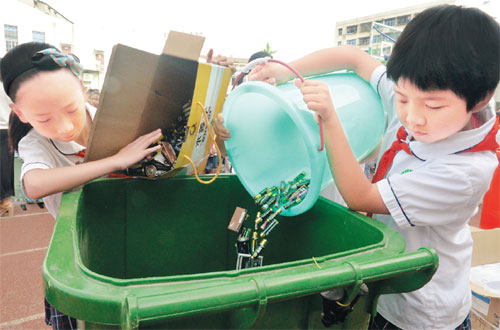Battery disposal quandary inspires charged debate
Updated: 2016-01-26 08:08
By Zheng Jinran(China Daily)
|
||||||||
Alkaline-based batteries are posing a problem in China because the nation has yet to formulate wide-ranging, environmentally safe methods of disposal. Zheng Jinran reports.
As an environmentally aware student, Zhang Tianyi used to place his spent batteries in collection boxes scattered across the main classrooms and dormitories of the Beijing Language and Culture University.
"Although it seems like AA or AAA alkaline batteries are fading out of our lives as they are replaced by other types, we still use them every day, in things such as remote controls for air conditioning units," the 23-year-old senior said.
However, Zhang stopped throwing his used batteries into the boxes, not because he rejected what he had learned about dealing with "toxic" batteries, but because the boxes have been full for many months.
Like Zhang, many people store waste batteries without knowing how to dispose of them.
On Oct 25, Wang Zixin, one of the organizers of a half-day "refuse classification" promotion, collected more than 100 spent batteries - weighing about 2 kilograms in total - from a community in the Fengtai district of Beijing.
"I often receive parcels containing waste batteries from other cities," said the 46-year-old owner of an alkaline battery storage facility. His plant, which he believes to be the largest in the capital, has multiple sources, ranging from individuals, schools and companies to communities. It once held more than 1,400 metric tons of waste batteries.
Wang also took delivery of 1,200 tons from the municipal government, "which stopped collecting from residents in 2012". He intended to use the batteries as a base for an operation to recycle the metals in the discharged cells (each battery equals one cell).
However, the governments of Beijing and cities in surrounding Hebei province refused to grant permission for the project because of the potential to contaminate the environment, which left Wang with the headache of dealing with a "battery mountain" in his warehouse.
Eventually, he decided to keep 200 tons, more than 10 million cells, to use in further research, and the municipal government transported the rest to the northern port city of Tianjin. After being wrapped in plastic and treated with chemicals to reduce the potential environmental damage, the batteries were buried in landfill sites for dangerous chemicals.
A long history
Alkaline batteries are used in a wide range of household items, including remote-control handsets, digital cameras and toys. They have a longer history and greater influence than any other type of battery, such as the lithium-ion variety used in cellphones, nickel-hydrogen batteries in hybrid electric vehicles and lead-acid cells in electric bikes.
Since 2004, China has been the world's largest producer of batteries, and in 2014, the nation's annual production of alkaline batteries reached 13.8 billion, according to statistics from the China Industrial Association of Power Sources, an industry association.
Many people are enthusiastic about collecting spent alkaline cells because of the widely held belief that they contain toxic chemicals that can contaminate the soil and underground water supplies if they are simply thrown away.
According to some scientists, one AAA alkaline battery has the capacity to pollute 1 square meter of soil, while one button cell (the flat batteries used in many types of camera) could pollute 600 tons of water, roughly equal to the amount each person consumes in a lifetime.
The public impact of the reports were highlighted by Beijing News, which spoke to Ming Wenyou, a watch repairer in Beijing, who said he has never discarded a single battery, and has stored more than 10 kilograms of them for three years.
Xu Haiyun, chief engineer at the China Urban Construction Design and Research Institute, said alkaline batteries contain toxic metals such as mercury - which can be especially dangerous to children's developing nervous systems - and other chemicals that leech into the soil, "but it's an exaggeration to say the chemicals cause soil and water pollution in that way, especially as China has seen great improvements in technology to reduce the toxic content."
When interviewed by China Environmental Daily, Wang Qi, head of the Institute of Solid Waste Pollution Control Technology at the Chinese Research Academy of Environmental Sciences, supported the concept that batteries cause minimal pollution, and cited an experiment conducted by Fukuoka University in Japan.
Researchers from the university buried alkaline batteries containing mercury in a landfill site for 20 years. Tests conducted later showed that the small amount of mercury that had leaked out was well within the soil's bearing capacity, and indicated that dumping batteries does not cause soil pollution.
Additionally, China has improved technologies to produce non-mercury batteries, and in 2006 outlawed the sale of cells containing more than 0.0001 percent mercury.
All batteries manufactured by legally registered companies comply with the national standards, according to Qian Jing, secretary general of the battery division of the China Industrial Association of Power Sources, who said illegal batteries are only being made in a small number of unregulated factories.
In recent years, technological improvements have reduced levels of mercury in batteries and national guidelines have been introduced that contain stipulations on the disposal of spent batteries, moves that have resulted in calls for collection and recycling to be phased out, and for batteries to be disposed of along with general household waste.
"The guideline does say they can be discarded, but the precondition is that there is no capability to recycle them," said Wang Zixin, the storage facility owner.
'Polluters pay' principle
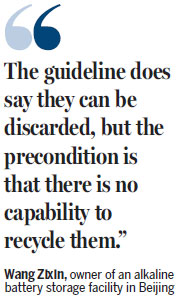
The recommended method of disposal in most European countries is to recycle spent alkaline batteries and reclaim the metals they contain. However, that's not practical in China because of limited funds and the narrow profit margins from recycling, according to Xu, the chief engineer, who has conducted industry research. He said alkaline-battery recycling would require large amounts of money.
The only profitable battery-recycling operations in China are those centered on lead-acid batteries, which are booming and attracting more people to the collection and recycling teams.
Wang Qi, of the Institute of Solid Waste Pollution Control Technology, and Jiang Jianguo, deputy head of the School of Environment at Tsinghua University, echoed Xu's opinion.
Jiang said the "polluters pay" principle should be introduced to make battery manufacturers responsible for paying for solutions, either recycling for metals or harmless processes to ensure safe dumping in landfill sites.
However, that approach is flawed, according to Qian, secretary-general of the industry association. "Providing the collection services would raise the financial burden for many producers, which would prompt them to refuse to do so," he said.
China's three major producers - Nanfu, Zhongyin (Ningbo) Battery and GP Battery - do not provide collection services and their batteries can be discarded with general household waste, according to the Beijing News.
Jiang said that local governments have limited powers, and no recycling services have yet been established so they have no option but to dump spent batteries in landfill sites. He agreed with Xu that while it's easy to formulate solutions, it's far more difficult to make them happen.
Contact the writer at zhengjinran@chinadaily.com.cn
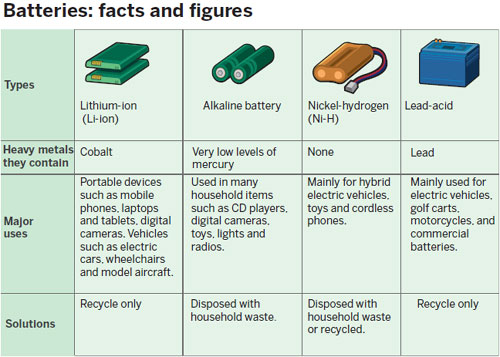
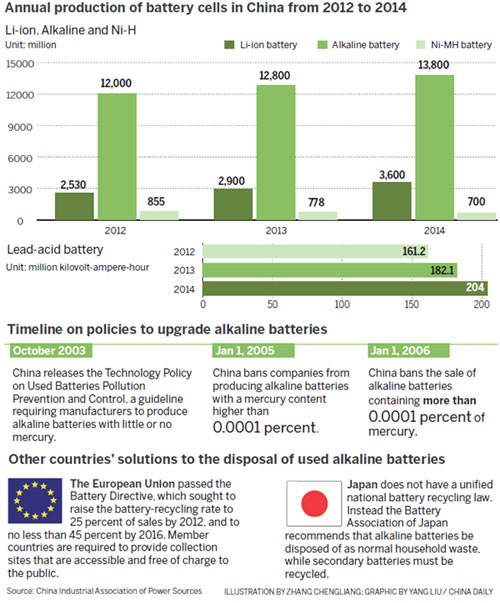
|
Children pour used batteries into a recycling bin at Yiling District Experimental Primary School in Yichang, Hubei province, on June 5, 2015, the World Environment Day. Yi Xuan / for China Daily |
(China Daily 01/26/2016 page6)
- A glimpse of Spring Rush: little migrant birds on the way home
- Policy puts focus on genuine artistic students
- Police unravel market where babies are bought, sold as commodities
- More older pregnant women expected
- Netizen backlash 'ugly' Spring Festival Gala mascot
- China builds Mongolian language corpus
- 2 Chinese nationals killed, 1 injured in suspected bomb attack in Laos
- New York, Washington clean up after fatal blizzard
- 'Plane wreckage' found in Thailand fuels talk of missing Malaysian jet
- Washington shuts down govt, NY rebounds after blizzard
- 7 policemen, 3 civilians killed in Egypt's Giza blast
- Former US Marine held in Iran arrives home after swap

 First trains of Spring Festival travel depart around China
First trains of Spring Festival travel depart around China
 Dough figurines of Monkey King welcome the New Year
Dough figurines of Monkey King welcome the New Year
 Ning Zetao, Liu Hong named China's athletes of the year
Ning Zetao, Liu Hong named China's athletes of the year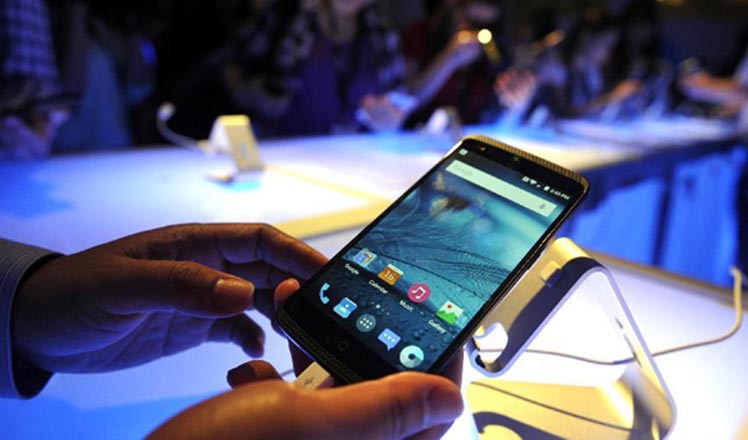
 Top 10 smartphone vendors based on market share in 2015
Top 10 smartphone vendors based on market share in 2015
 Snow scenery across China
Snow scenery across China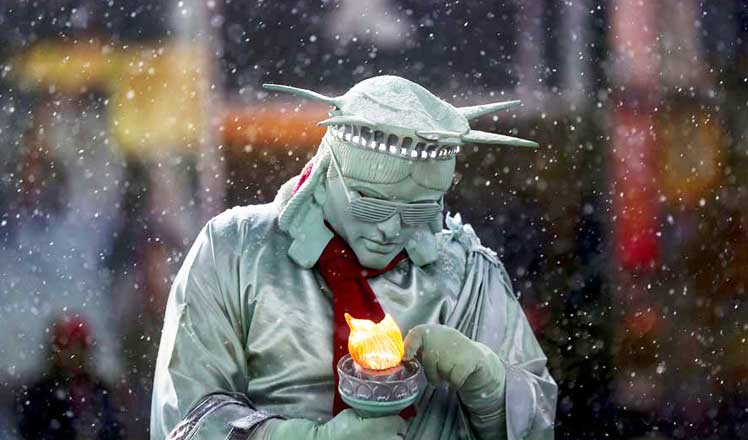
 Storm grips New York after dumping 2 feet of snow on Washington
Storm grips New York after dumping 2 feet of snow on Washington
 Art exhibitions in 2016 worth seeing
Art exhibitions in 2016 worth seeing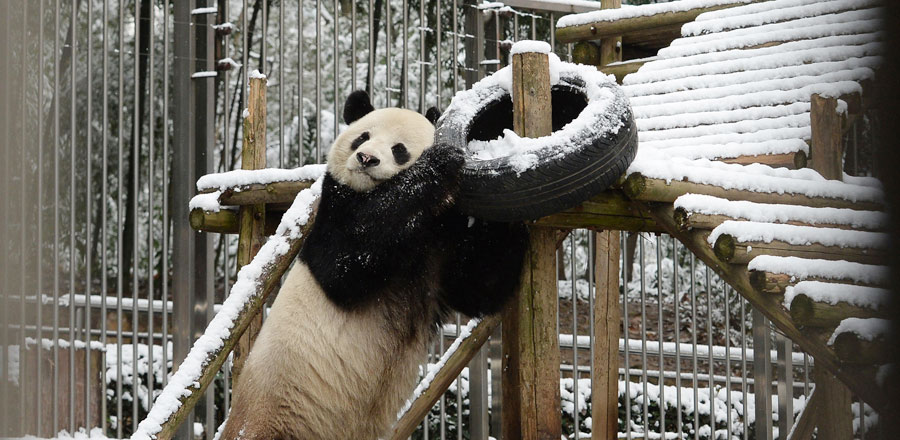
 Winter flexes its muscles as cold snap makes its way
Winter flexes its muscles as cold snap makes its way
Most Viewed
Editor's Picks

|

|

|

|

|

|
Today's Top News
National Art Museum showing 400 puppets in new exhibition
Finest Chinese porcelains expected to fetch over $28 million
Monkey portraits by Chinese ink painting masters
Beijing's movie fans in for new experience
Obama to deliver final State of the Union speech
Shooting rampage at US social services agency leaves 14 dead
Chinese bargain hunters are changing the retail game
Chinese president arrives in Turkey for G20 summit
US Weekly

|

|
